Introduction- Applications of Artificial Intelligence
Artificial intelligence (AI) stands at the vanguard of technological innovation, reshaping industries, transforming everyday experiences, and challenging our knowledge of what is possible. Since its inception, AI has evolved from a theoretical concept to an effective pressure using unparalleled improvements in science, engineering, and society as an entire.
The evolution of AI can be traced via a long time of studies, experimentation, and breakthroughs, from early symbolic good judgment and professional systems to modern devices studying algorithms and neural networks. Today, AI permeates every issue of our lives, from the digital assistants on our smartphones to the self-sufficient cars navigating our streets.
In this newsletter, we will discover the transformative programs and applications of artificial intelligence, highlighting ten key areas where AI is creating a significant effect. From healthcare and finance to transportation and entertainment, we can delve into the methods wherein AI is revolutionizing industries, empowering people, and shaping the future of humanity.
Join us on this journey via the evolution and impact of applications of artificial intelligence as we find the possibilities and demanding situations of this groundbreaking technology.
Healthcare – Applications of Artificial Intelligence

In the world of healthcare, artificial intelligence (AI) is catalyzing a profound transformation, revolutionizing patient care, medical research, and healthcare transport. With its capability to analyze great quantities of records and identify complex styles, AI is improving diagnostics, treatment-making plans, and disease management.
AI-powered diagnostic tools, including image popularity algorithms and predictive analytics fashions, allow healthcare specialists to come across diseases earlier, with extra accuracy and precision. This helps timely interventions and customized treatment plans, enhancing patient results and decreasing healthcare charges.
Moreover, AI enables the discovery of new tablets and healing procedures by accelerating the manner of drug design, screening, and optimization. Machine learning algorithms examine genetic records, molecular systems, and clinical trial results to identify ability treatments for numerous illnesses, expediting the improvement of novel treatment plans and medications.
Furthermore, AI enhances healthcare operations by optimizing resource allocation, streamlining administrative obligations, and improving affected person stories. Virtual fitness assistants and chatbots provide instantaneous access to clinical information and support, empowering sufferers to control their fitness more efficiently and navigate the complexities of the healthcare gadget.
Overall, AI is revolutionizing healthcare by enhancing diagnostic accuracy, accelerating drug discovery, and improving patient consequences, in the long run, reworking the manner healthcare is delivered and experienced.
Finance – Applications of Artificial Intelligence
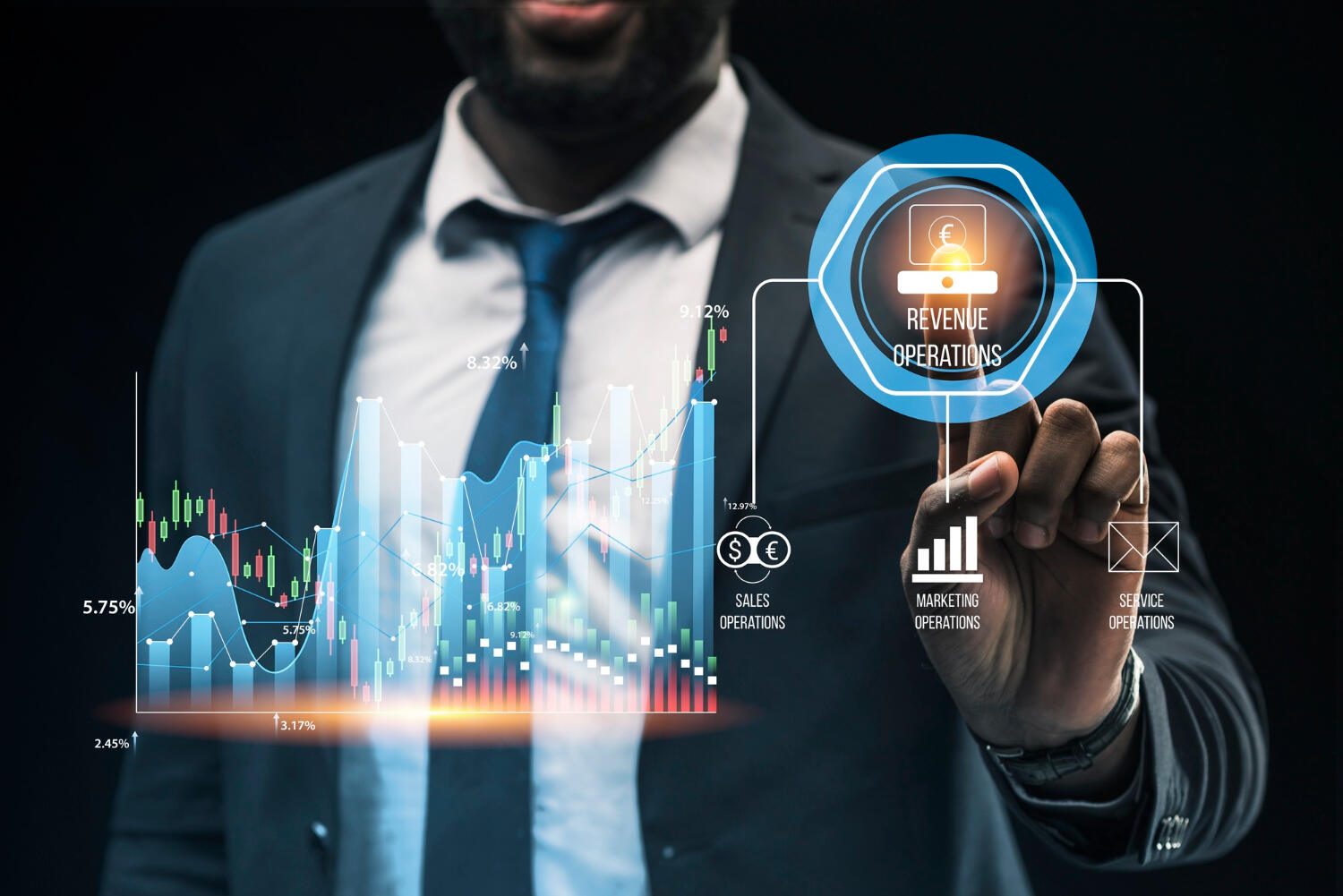
Artificial intelligence (AI) is reshaping the finance industry with the aid of revolutionizing processes, enhancing choice-making, and optimizing operations. AI-powered algorithms analyze vast quantities of financial statistics, marketplace tendencies, and purchaser behavior to provide treasured insights and predictions.
In investment management, AI allows portfolio optimization, risk assessment, and algorithmic trading, maximizing returns and minimizing volatility. Additionally, AI-driven robo-advisors offer personalized funding recommendations and portfolio management services to customers, democratizing access to wealth control and financial planning.
In banking and finance, AI enhances fraud detection, compliance tracking, and customer service. Machine-gaining knowledge of algorithms analyzes transaction information to identify fraudulent activities, lowering monetary losses and enhancing safety.
AI-powered chatbots and virtual assistants provide on-the-spot aid and assistance to customers, enhancing the general banking revel and reducing operational prices.
Moreover, AI helps credit score scoring, loan underwriting, and chance assessment techniques, enabling faster and extra correct selection-making in lending and credit score management.
AI-pushed predictive analytics fashions forecast market trends, hobby fees, and economic signs, empowering monetary institutions to make knowledgeable investment decisions and manage threats successfully.
While AI offers extensive blessings to the finance enterprise, challenges inclusive of statistics privateness, regulatory compliance, and algorithmic bias ought to be addressed. Nonetheless, the combination of AI technologies holds a colossal capacity to convert finance, using innovation, enhancing performance, and turning in fees to groups and customers alike.
Transportation – Applications of Artificial Intelligence

In transportation, artificial intelligence (AI) is using giant advancements in safety, performance, and sustainability. AI-powered systems are revolutionizing the automotive industry, with self-using vehicles leading the way.
These self-sustaining automobiles use AI algorithms to perceive their surroundings, navigate routes, and make real-time driving selections, promising to reduce accidents and congestion even as enhancing mobility for all.
Furthermore, AI enhances site visitors’ management structures with the aid of reading visitors’ styles and optimizing routes in real time, reducing travel times and fuel intake.
This era also enables predictive maintenance for automobiles and infrastructure, detecting potential problems earlier than they boost and minimizing downtime.
In logistics and supply chain management, AI streamlines operations by way of optimizing routes, scheduling deliveries, and managing inventory extra correctly. AI-driven predictive analytics anticipate demand fluctuations, enabling agencies to adjust manufacturing and distribution strategies consequently, reducing expenses and waste.
Moreover, AI-powered transportation apps and platforms provide customized journey hints and actual-time updates on transit schedules and routes, improving the overall passenger experience and inspiring the usage of public transportation.
Overall, AI is reworking the transportation industry by way of making cars smarter, roads safer, and logistics greater efficient, ultimately paving the way for a future of sustainable and reachable mobility.
Education – Applications of Artificial Intelligence
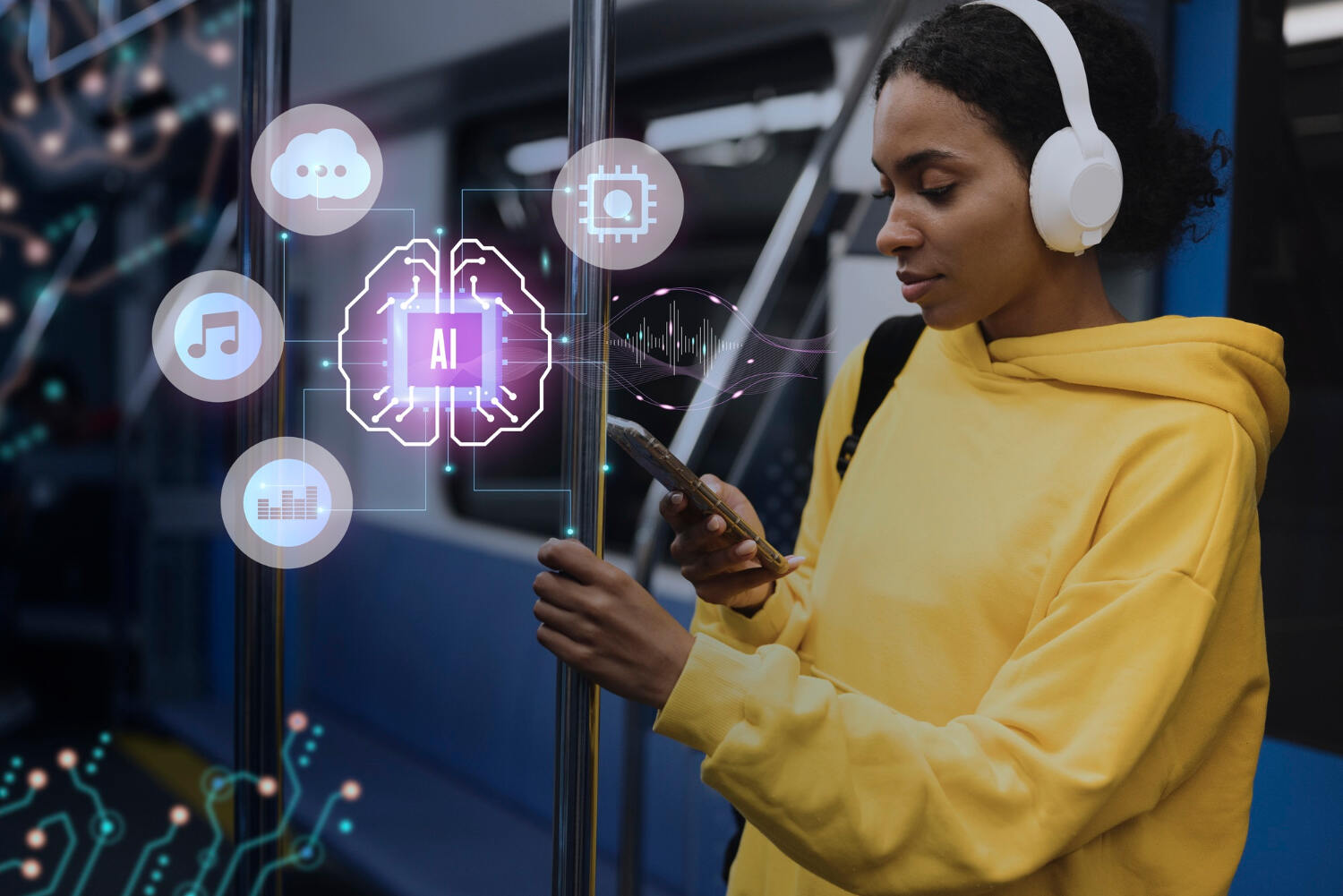
In the sphere of education, artificial intelligence (AI) is revolutionizing coaching and gaining knowledge of processes, providing personalized stories, and improving consequences for college kids of every age.
AI-powered adaptive gaining knowledge of structures analyze students’ strengths, weaknesses, and studying styles to deliver customized classes and sporting events, catering to personal needs and maximizing engagement and retention.
Furthermore, AI tutors and virtual assistants provide on-the-spot remarks and support to students, guiding them through complex concepts and difficult issues in real time. These virtual educators supplement traditional teaching methods, imparting additional assets and assistance to students out of doors the school room.
Additionally, AI complements administrative tasks in schooling institutions, automating tactics that include grading, scheduling, and resource allocation, liberating time for educators to be aware of teaching and mentoring college students. AI-driven analytics additionally help educators track student development, discover regions for development, and expand centered interventions to aid struggling novices.
Moreover, AI helps get the right of entry to academic resources and opportunities rookies around the world, bridging geographical and socioeconomic limitations via online getting-to-know structures and virtual libraries.
Overall, AI is reworking education through personalizing studying reports, optimizing administrative tasks, and expanding entry to exceptional schooling for all, in the end empowering people and driving societal progress.
Retail – Applications of Artificial Intelligence
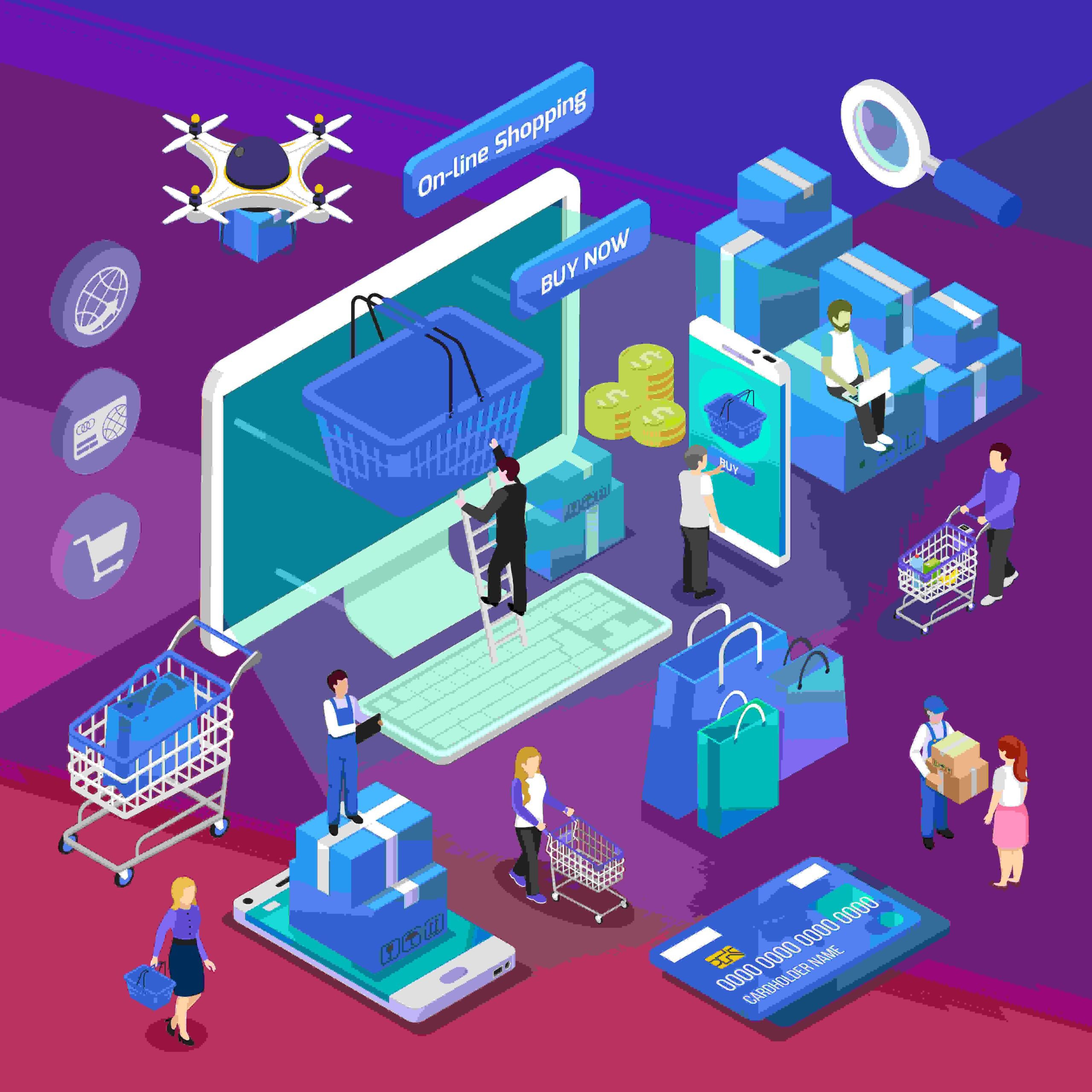
In the retail industry, artificial intelligence (AI) is revolutionizing the manner corporations interact with customers, control operations, and power sales. AI-powered advice engines analyze customer statistics and behavior to offer personalized product pointers, increasing move-promoting and upselling opportunities at the same time as improving general purchasing enjoyment.
Moreover, AI complements stock management with the aid of predicting calls, optimizing stocking tiers, and lowering out-of-inventory conditions. Machine mastering algorithms analyze ancient income records, market traits, and external elements to forecast and call for more as it should be, minimizing excess stock and maximizing income margins.
AI-driven chatbots and virtual assistants provide instantaneous customer support and assistance, answering inquiries, resolving troubles, and guiding shoppers through the shopping process. These virtual marketers provide 24/7 availability, improving patron delight and loyalty while reducing the workload on human customer support representatives.
Additionally, AI enhances pricing techniques and dynamic pricing fashions by analyzing competitor pricing, market conditions, and patron alternatives in real time. This permits stores to alter prices dynamically to optimize revenue and live competitively in a fast-paced marketplace environment.
Overall, AI is remodeling the retail enterprise using optimizing operations, personalizing purchaser reports, and using sales boom, ultimately reshaping the way groups interact with clients and deliver fees in the virtual age.
Entertainment – Applications of Artificial Intelligence

Artificial intelligence (AI) is reshaping the leisure enterprise using revolutionizing content material advent, curation, and distribution. AI-powered algorithms examine widespread amounts of information to expect target market preferences and tendencies, informing decision-making methods for content producers and distributors.
This enables them to tailor offerings to specific demographics and optimize content material strategies to maximize engagement and viewership.
In the realm of content material creation, AI technologies such as deep getting-to-know and herbal language processing are used to generate and enhance media content material, starting from music compositions and screenplay writing to video enhancement and computer graphics.
This equipment empowers creators to streamline production processes, unleash creativity, and bring amazing content material more efficaciously.
Furthermore, AI-pushed recommendation systems customize content material discovery for clients, suggesting movies, songs, and other varieties of leisure primarily based on their viewing habits, choices, and demographics. This complements consumer stories, increases engagement, and drives content intake across diverse structures.
Additionally, AI enhances gaming reviews by way of growing immersive environments, smart non-participant characters (NPCs), and adaptive gameplay mechanics. AI algorithms examine participant conduct and modify recreation dynamics in real-time, offering personalized challenges and stories tailor-made to individual possibilities.
Overall, AI is revolutionizing the amusement enterprise by enabling personalized content material stories, streamlining manufacturing approaches, and improving consumer engagement, in the end, shaping the destiny of enjoyment intake and interaction.
Cybersecurity – Applications of Artificial Intelligence
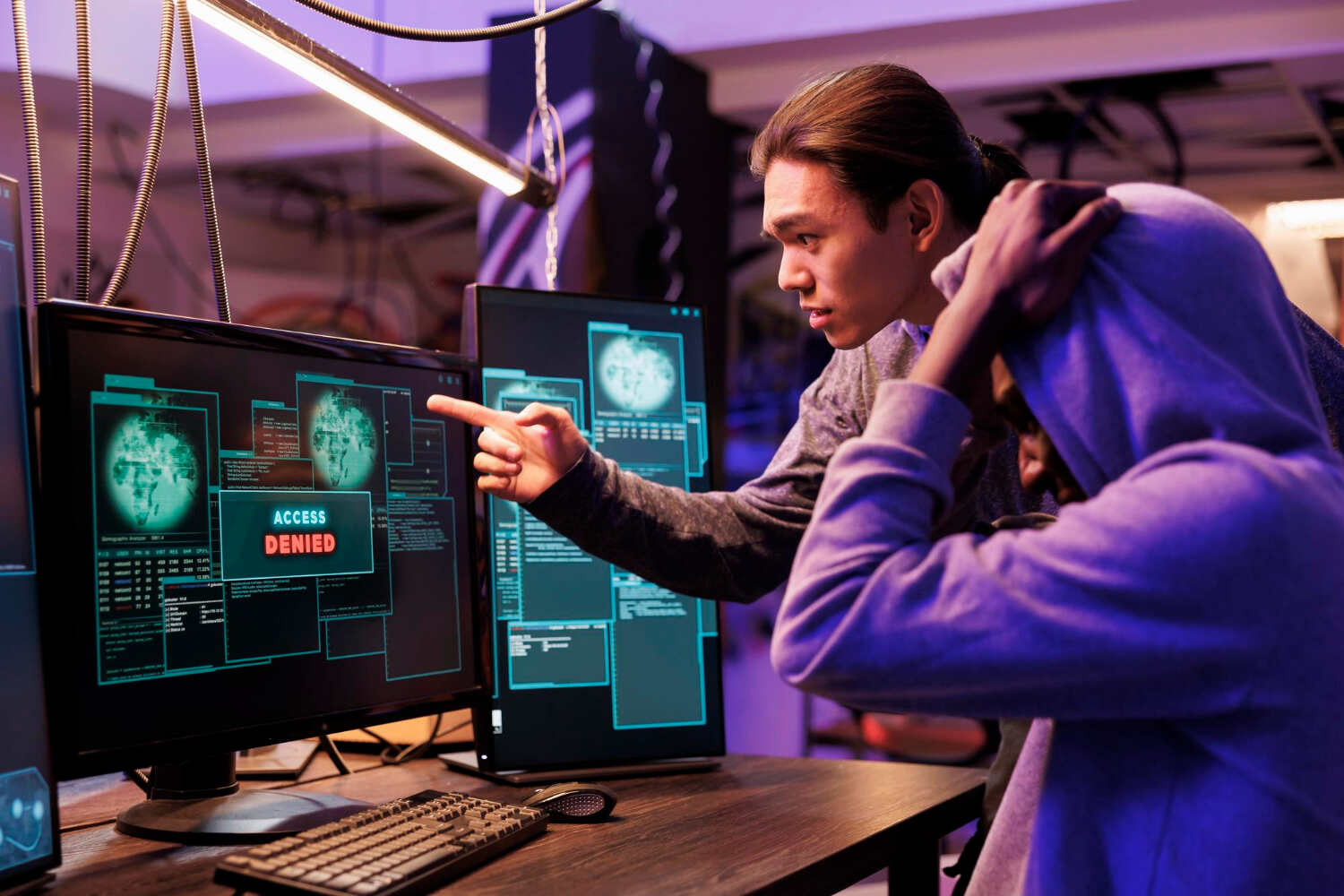
In cybersecurity, artificial intelligence (AI) plays an essential function in detecting, stopping, and mitigating cyber threats in actual time. AI-powered algorithms examine sizeable quantities of statistics from network traffic, user behavior, and system logs to discover patterns indicative of malicious interest, enabling groups to reply proactively to ability threats.
AI-driven hazard detection structures can understand recognized assault signatures and anomalies, alerting safety teams to suspicious conduct and capacity breaches earlier than they amplify.
Moreover, AI complements threat intelligence capabilities by continuously tracking emerging threats and adapting protection techniques accordingly, bolstering resilience towards evolving cyber threats.
Furthermore, AI automates habitual protection responsibilities, which include patch control, vulnerability assessment, and incident reaction, freeing up security specialists to recognize extra strategic tasks and danger-looking sports.
Additionally, AI augments human decision-making approaches by way of presenting actionable insights and tips primarily based on actual-time analysis of cyber threats and protection incidents.
Moreover, AI enhances the effectiveness of authentication and gets admission to control mechanisms by way of leveraging biometric authentication, behavioral analysis, and anomaly detection to verify personal identities and stumble on unauthorized access attempts.
Overall, AI is remodeling cybersecurity by way of allowing proactive risk detection, automatic incident response, and more suitable access control measures, ultimately strengthening defenses against cyber assaults and safeguarding touchy information and essential infrastructure from emerging threats.
Agriculture – Applications of Artificial Intelligence

In agriculture, artificial intelligence (AI) is revolutionizing traditional practices, optimizing crop yields, and promoting sustainable farming practices. AI-powered systems examine records from sensors, drones, satellites, and weather forecasts to offer farmers actionable insights and hints for crop management.
AI-pushed precision agriculture strategies permit farmers to monitor soil moisture degrees, nutrient concentrations, and crop fitness in real-time, allowing for targeted irrigation, fertilization, and pest control. This maximizes resource efficiency, minimizes environmental impact, and improves normal crop productiveness.
Moreover, AI complements predictive analytics in agriculture by forecasting crop yields, identifying disease outbreaks, and predicting climate patterns with more accuracy. This permits farmers to make informed choices regarding planting schedules, harvest instances, and crop rotations, minimizing risks and maximizing returns on funding.
Additionally, AI facilitates self-reliant farming operations via the usage of robot equipment and drones equipped with AI algorithms. These technologies automate responsibilities, which include planting, spraying, and harvesting, lowering labor prices, and growing operational efficiency.
Furthermore, AI-powered market intelligence systems examine deliver chain facts and market trends to provide farmers with insights into customer calls, pricing dynamics, and distribution channels, permitting them to make knowledgeable choices approximately crop choice and advertising and marketing strategies.
Overall, AI is remodeling agriculture by optimizing resource management, increasing productivity, and promoting sustainable farming practices, ultimately ensuring meal protection and environmental sustainability for future generations.
Environmental Conservation – Applications of Artificial Intelligence
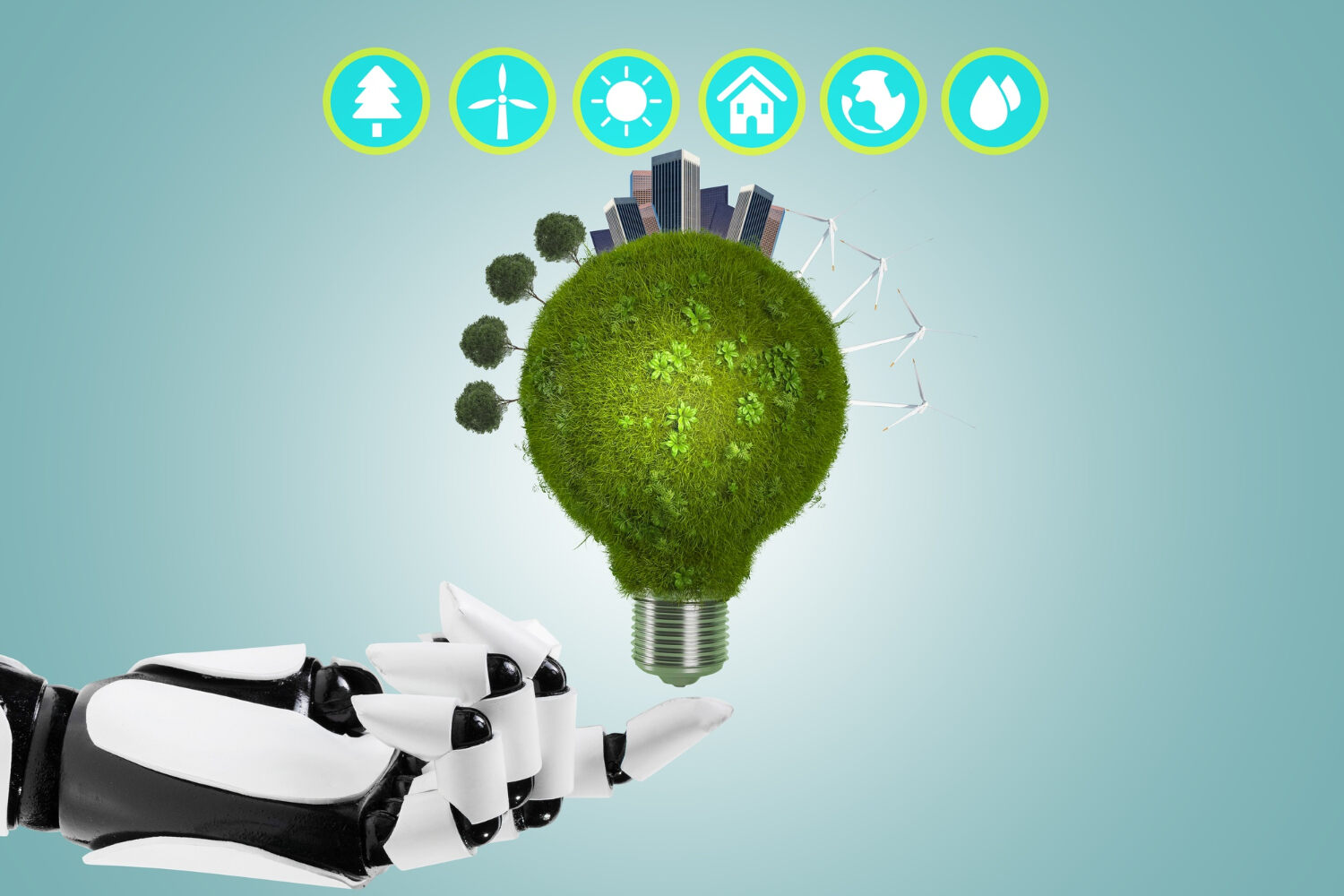
In environmental conservation, artificial intelligence (AI) is revolutionizing efforts to screen, manipulate, and protect natural ecosystems. AI-powered systems analyze satellite TV for PC imagery, sensor statistics, and environmental parameters to display adjustments in land use, biodiversity, and habitat fitness in actual time.
AI-driven predictive modeling strategies enable conservationists to forecast environmental traits, examine the impacts of climate exchange, and discover regions liable to degradation or deforestation. This permits proactive conservation strategies and targeted interventions to mitigate environmental threats and hold crucial habitats.
Moreover, AI enhances flora and fauna conservation efforts by way of tracking animal moves, identifying species populations, and detecting poaching sports through image reputation and sample evaluation. This enables conservationists to enforce measures to guard endangered species and combat illegal natural world alternatives more efficiently.
Additionally, AI facilitates the improvement of smart environmental monitoring systems that automate facts series, analysis, and reporting processes, reducing the time and assets required for environmental checks and compliance monitoring.
Furthermore, AI-powered decision-making tools assist policymakers and resource managers in making knowledgeable decisions about land use planning, natural resource management, and conservation priorities. This equipment integrates various datasets and stakeholder entries to optimize conservation consequences and ensure the sustainable use of natural sources.
Overall, AI is reworking environmental conservation with the aid of improving tracking abilities, permitting proactive interventions, and promoting sustainable control practices, in the long run safeguarding biodiversity and ecosystem fitness for destiny generations.
Customer Service – Applications of Artificial Intelligence
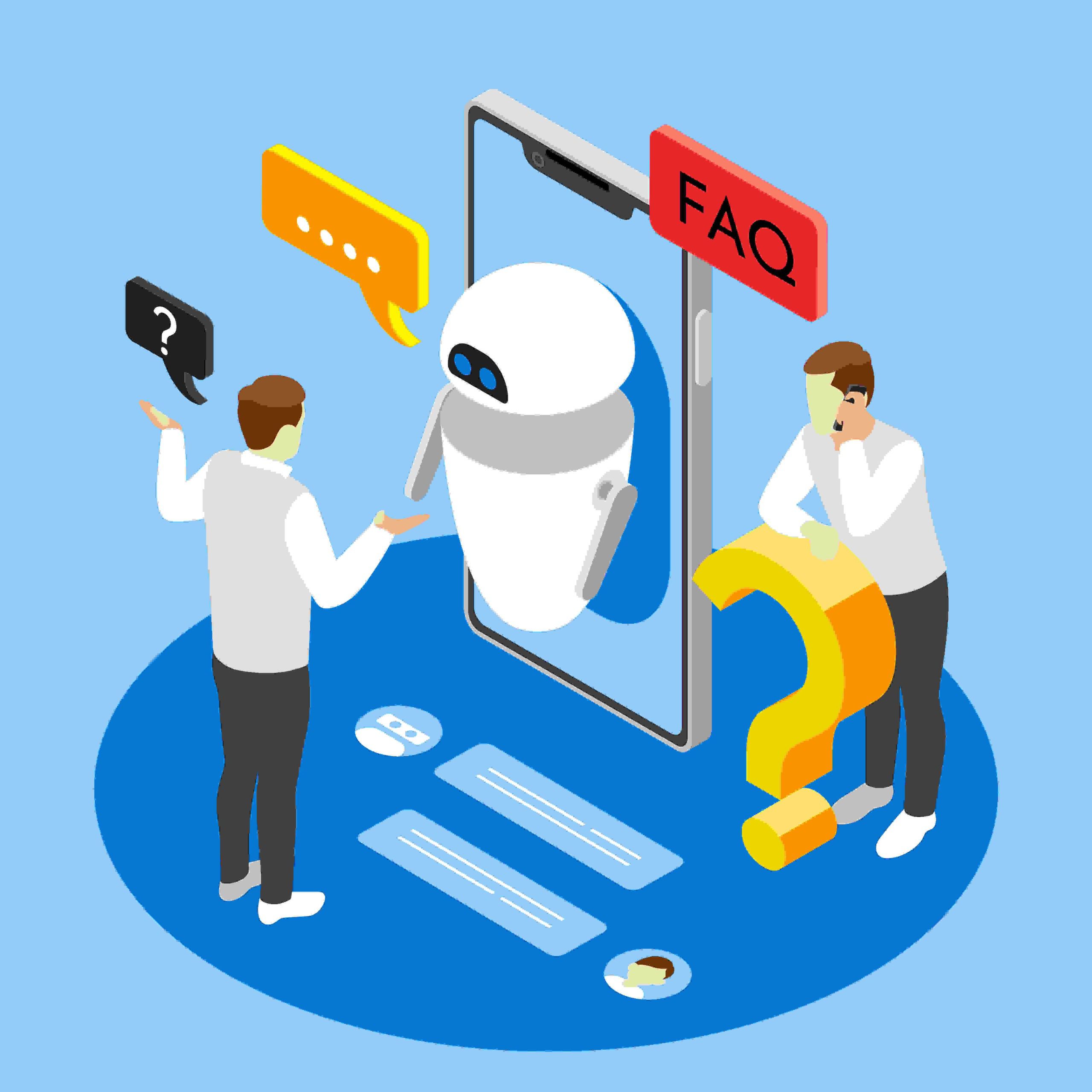
In customer service, artificial intelligence (AI) is revolutionizing the way businesses interact with clients, offering personalized stories and improving delight degrees. AI-powered chatbots and digital assistants are to be had 24/7 to reply to inquiries, remedy problems, and provide aid throughout diverse channels, which include websites, cellular apps, and social media platforms.
These virtual agents leverage herbal language processing (NLP) and gadget-getting-to-know algorithms to understand customer queries, offer relevant solutions, and deliver consistent carrier reviews, enhancing consumer satisfaction and loyalty.
Moreover, AI-pushed sentiment evaluation gear monitors client remarks and social media conversations in actual time, permitting corporations to discover rising tendencies, cope with consumer concerns right away, and improve logo recognition.
Additionally, AI-powered recommendation engines examine patron statistics and conduct to offer customized product recommendations and promotions, increasing cross-promoting and upselling opportunities while enhancing the general shopping experience.
Furthermore, AI enhances customer support operations by way of automating routine tasks together with ticket routing, scheduling appointments, and processing refunds, liberating human agents to the consciousness of extra complex inquiries and proactive provider initiatives.
Overall, AI is reworking customer service by allowing faster reaction times, personalized interactions, and more efficiency, ultimately driving purchaser pleasure and loyalty.
Conclusion – Applications of Artificial Intelligence
In conclusion, applications of artificial intelligence (AI) have emerged as a transformative pressure across various industries, revolutionizing procedures and improving experiences in customer service, environmental conservation, agriculture, cybersecurity, enjoyment, transportation, retail, training, healthcare, and finance.
Through superior algorithms and gadgets gaining knowledge of techniques, AI permits corporations to research giant amounts of statistics, predict trends, automate obligations, and make informed decisions with extraordinary pace and accuracy.
AI-powered technologies inclusive of chatbots, advice engines, and predictive analytics structures have redefined customer interactions, personalized stories, and enhanced delight ranges across industries.
In agriculture and environmental conservation, AI optimizes useful resource control, promotes sustainability, and mitigates environmental risks through precision farming strategies and predictive modeling.
Moreover, in healthcare and education, AI complements diagnostic accuracy, personalizes gaining knowledge of experiences, and helps access to best offerings and assets.
In cybersecurity and finance, AI strengthens defenses in opposition to cyber threats, automates monetary strategies, and optimizes investment techniques.
Overall, the huge adoption of AI indicates a shift in the direction of an extra efficient, intelligent, and interconnected global, in which era empowers individuals, drives innovation, and solves complicated, demanding situations.
As AI continues to conform and shape the future, its capacity to pressure effective alternatives and create a fee for society stays countless.
What are the records of artificial intelligence (AI)?
AI has executed brilliant statistics, which include AlphaGo defeating human Go champions, GPT-3 generating human-like text, and DALL-E producing diverse images from textual descriptions. GPT-four has set facts for larger-scale language understanding. Reinforcement learning algorithms have mastered complex video games like Dota 2 and StarCraft II, showcasing AI's advancing skills.
How are artificial intelligence remodeling industries?
Artificial intelligence is reworking industries by way of automating tasks, optimizing strategies, and allowing records-driven decision-making. In healthcare, AI aids analysis and drug discovery. In finance, it enhances threat management and fraud detection. Manufacturing advantages from predictive protection and fine control. AI-pushed personalization revolutionizes retail and marketing strategies, reshaping consumer experiences.
How are artificial intelligence remodeling industries?
Artificial intelligence revolutionizes industries by means of streamlining operations, enhancing productiveness, and riding innovation. From healthcare diagnostics to monetary evaluation, AI automates responsibilities, predicts traits, and optimizes tactics. It permits personalized patron stories in retail, transforms supply chain management, and fuels advancements in independent automobiles and smart cities, reshaping the future of labour and trade.
What are some examples of transformative AI programs?
Transformative AI applications include AlphaGo, which beat human champions within the complex sport of Go, GPT-3 producing human-like textual content throughout numerous domain names, and self-driving vehicle technologies like Tesla's Autopilot. IBM's Watson aids in scientific analysis, at the same time as DeepMind's AlphaFold predicts protein folding, revolutionizing drug discovery and healthcare.
What are the moral implications of the AI era?
The AI era poses moral concerns regarding privacy invasion, task displacement, and algorithmic biases. Ethical dilemmas arise from AI's misuse of its capacity in surveillance, warfare, and manipulation. Questions about accountability, transparency, and the societal impact of AI highlight the need for strong guidelines and ethical frameworks to ensure accountable improvement and deployment.
How does artificial intelligence make contributions to economic increase and productiveness?
Artificial intelligence boosts financial increase and productiveness with the aid of automating tasks, reducing prices, and enhancing efficiency throughout industries. AI-driven insights enhance selection-making, optimize resource allocation, and permit innovation. Through advanced analytics, customized offerings, and streamlined approaches, AI fosters competitiveness, hurries up development and unlocks new possibilities for financial growth and prosperity.
What are the demanding situations and limitations of artificial intelligence?
Challenges in AI include ethical concerns about privacy and bias, the need for statistics to be precise and accurate, and the danger of job displacement. AI structures may lack common sense knowledge and struggle with explainability, compromising their trustworthiness. Technical hurdles like robustness, scalability, and strength efficiency additionally pose vast challenges to AI development.
How can individuals and agencies leverage artificial intelligence efficaciously?
Individuals and agencies can harness AI efficiently by investing in skills development, fostering a lifestyle of innovation, and prioritizing ethical concerns. By leveraging AI gear for facts analysis, automation, and selection aid, they can enhance productivity, unlock new insights, and force sustainable growth in various sectors and programs.
What are a few emerging tendencies and developments in artificial intelligence?
Emerging tendencies in AI encompass advancements in deep mastering, particularly in natural language processing and reinforcement getting to know. AI programs increasingly focus on area computing and IoT integration for actual-time processing. Ethical AI frameworks benefit significance, along with efforts to enhance explainability, fairness, and accountability in AI structures.
How is artificial intelligence being regulated and ruled globally?
The global law of AI is in its infancy, with numerous nations issuing guidelines and frameworks focusing on ethics, safety, and transparency. Efforts encompass the EU's AI Act, China's guidelines on AI governance, and the OECD's AI ideas. International collaboration seeks to harmonize requirements and cope with cross-border AI challenges.
What does destiny preserve for artificial intelligence?
The future of synthetic intelligence holds a big capability for transformative improvements throughout industries, healthcare, and society. AI is poised to force innovation, beautify productivity, and deal with complex challenges. Ethical considerations, accountable improvement, and persistent studies will shape AI's evolution, paving the manner for a smarter, more related destiny.
Digital Marketing Services, SEO and E-Commerce Solutions in Delhi, India
Author – Farhanul Haque
The article “10 Empowering Applications of Artificial Intelligence” is written by the Founder of Digitamizer who has been working in the e-commerce Sector Since 2006 and is also a certified Digital Marketing Professional from IIT, Delhi, India.

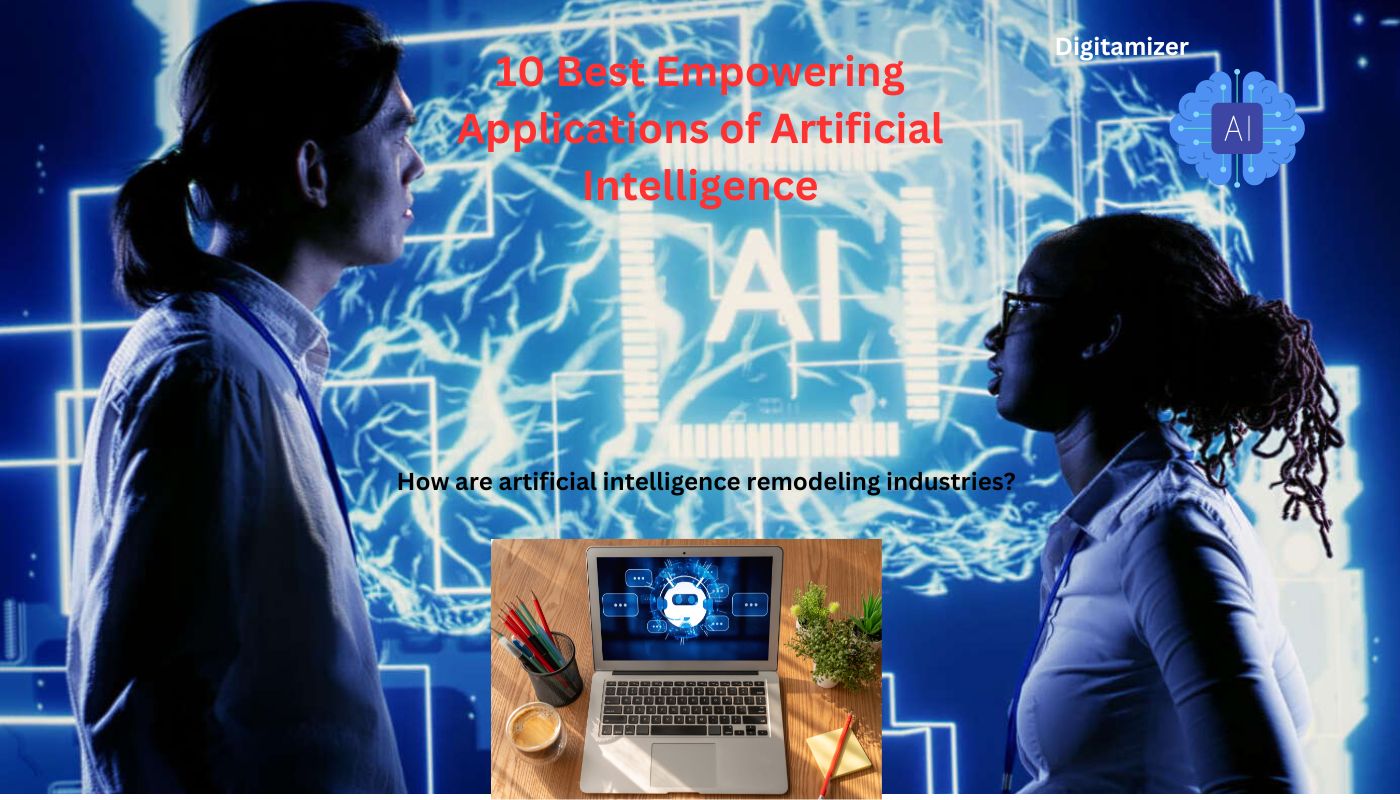
Thanks for sharing. I read many of your blog posts, cool, your blog is very good.
Thanks for sharing. I read many of your blog posts, cool, your blog is very good.